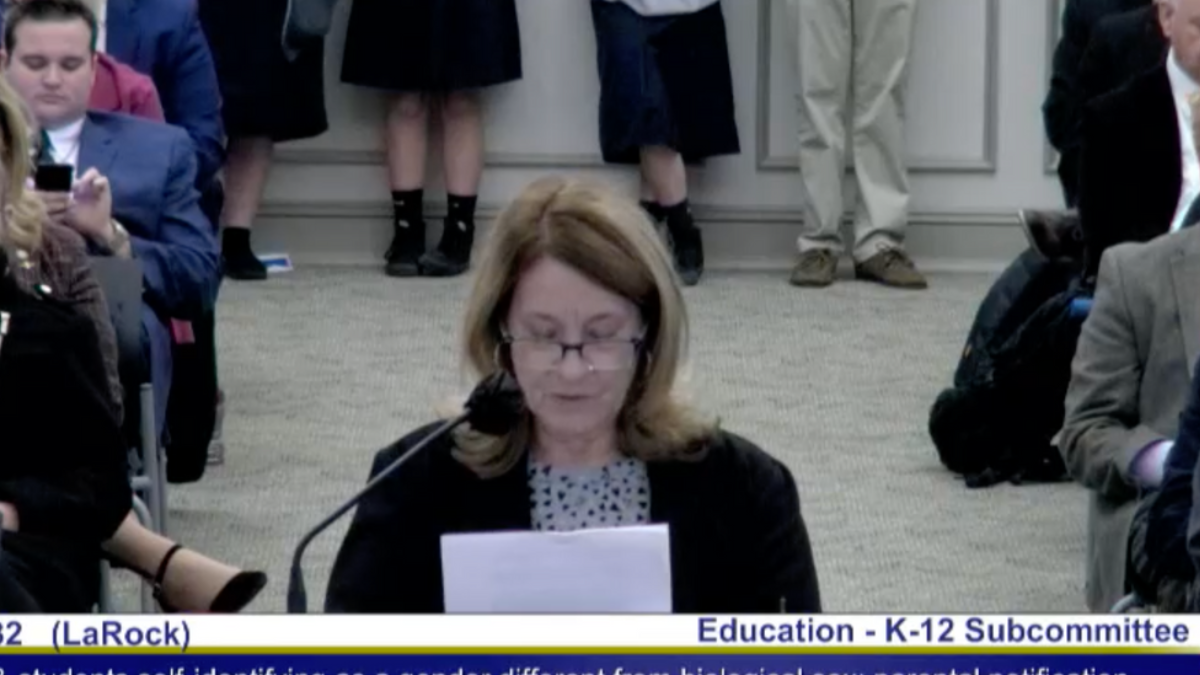

The Story of Sage Blair
Why Christians must stand against ideologies that fail kids.
10/2/23
John Stonestreet and Kasey Leander

Fourteen-year-old Sage Blair had already been through a lot by the time she was legally adopted by her grandparents. When she entered high school, she began to experiment, as many of her friends were, with her “gender identity.” All the while, the school deliberately withheld information from her adoptive parents. Sage was encouraged to adopt the name “Draco,” claim male pronouns, and use the boys’ bathroom. Only after Sage was physically assaulted by a group of boys in the bathroom did her parents find out what was happening.
Sage ran away. After connecting with an online “friend,” she was drugged, trafficked, and sexually exploited. Nine days later, she was located by the FBI in Baltimore.
Testifying before a House subcommittee in Virginia, Michele Blair remembered the drive to pick up her daughter, only to find out that she and her husband had been summoned before a Maryland judge for their refusing to support their daughter’s transition.
They didn’t even tell Sage that we came for her. … We finally enter the courtroom, and Sage appears on a huge Zoom screen from a prison cell. She looks tiny and broken, and I cry out, “I love you, Sage!” Sage responds, “I love you too, Nana!”
Sage’s state-appointed attorney rebuked Michele, saying “She is he, and his name is Draco, not Sage.” The judge then accused the Blairs of emotional and physical abuse, though, in Michele’s words,
We just learned she claim[ed] to be trans and were willing to use any name and pronouns to bring her home. My husband was so tearful, he kept forgetting the new pronouns. So, the judge had the bailiff remove him from the courtroom.
I was pleading for my child to be returned and treated for her unspeakable trauma. Judge Kershaw told me if I used the word trauma again, he would throw me out too.
Judge Kershaw withheld custody from Sage’s parents for over two months. During that time, Sage was transferred to a state facility for boys where, again, she was sexually abused. She ran away again and, once again, became a victim of human trafficking. When she resurfaced months later, in Texas, she was returned to Virginia where she spent more months in a court-appointed mental health clinic. The counselors at this center pushed her toward a double mastectomy as a solution for her mental health issues.
Nearly a year after the ordeal began, Sage was allowed to come home. Her parents were vindicated after a months-long state inquiry concluded that there was no evidence of abuse on their part. For Sage, however, the damage was done. Now with the loving support of her parents and having desisted from her trans identity, she still suffers from severe anxiety, panic attacks, and medical issues resulting from all she has suffered.
The most damning part of Sage’s story is how tragically predictable all of it was once the state chose to ignore decades of research, the entire weight of human experience, common sense, and the rights of parents to their children. In no way should it be said that Sage “fell through the cracks.” When dealing with ideologies that deny reality, failures are features, not glitches.
Still, Sage’s example is about as plain as any of how trans ideology destroys our most essential relationships: of a child to her body, of a child to her parents, of a family to the wider community, of a judge to justice, of citizens to state authorities. When legal authorities embrace bad ideas, the consequences are all the more devastating for the victims.
For Christians exhausted by the “culture war,” unsure of whether we engage in politics, and wishing only to “stay in our lane” of proclaiming the Gospel, Sage’s story speaks. Every generation of Christians who have faced conflict within a pagan cultural context has had to protect children. Our pagan moment is no different.
We will answer before God about whether we remained silent or dared to speak on behalf of children like Sage and parents who face incredible opposition like hers did. May we be known for our love, expressed by a courage that challenges evils like Sage faced, until they are a thing of the past.
This Breakpoint was co-authored by Kasey Leander. For more resources to live like a Christian in this cultural moment, go to breakpoint.org.
Have a Follow-up Question?
Up
Next















